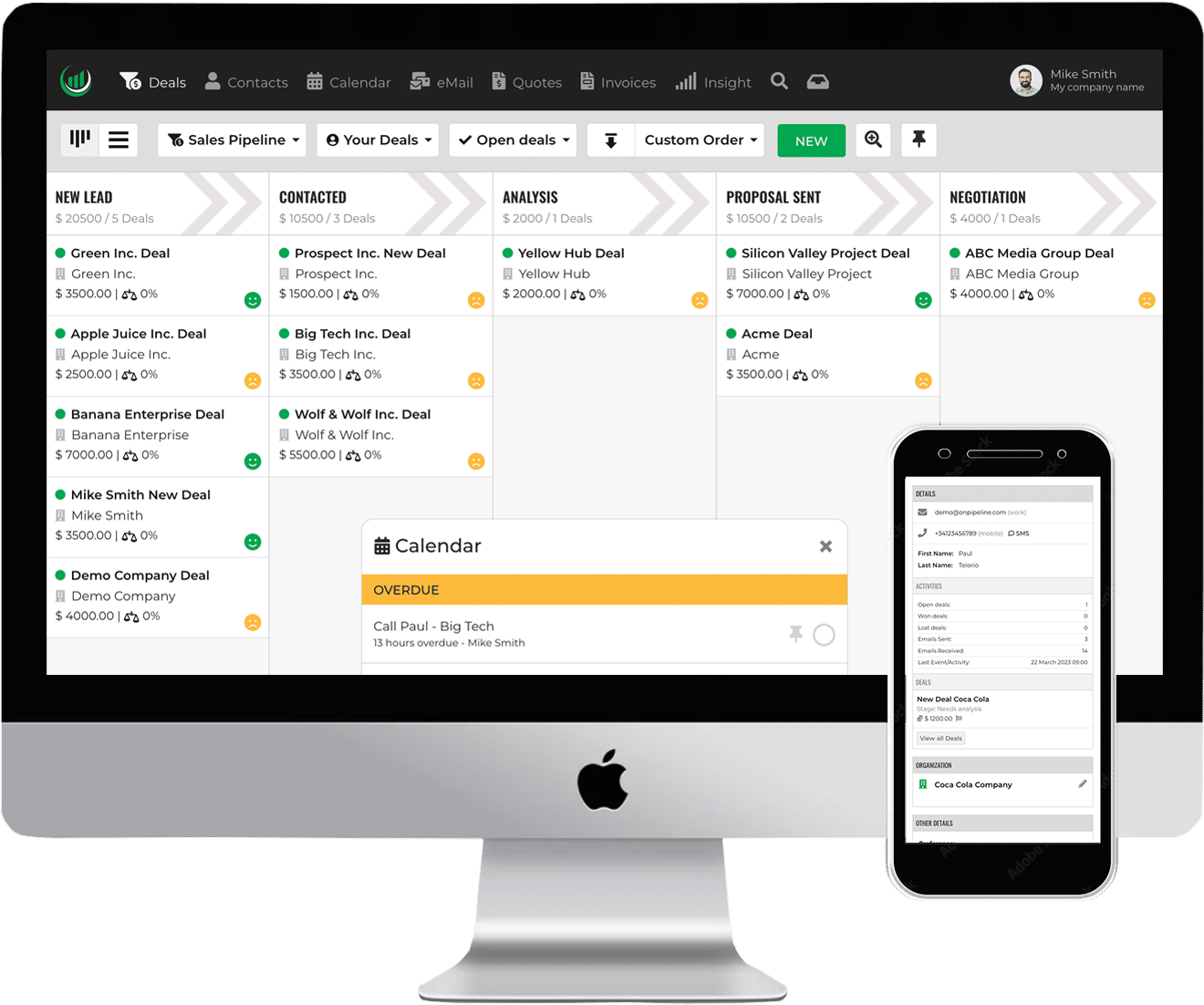We will explore the importance of maintaining ethical standards and transparency, and how Customer Relationship Management can be central in upholding these values to forge client relationships.
Ethics in Sales
It involves adhering to moral principles that govern interactions between sales professionals and their customers. It ensures fairness, honesty, and integrity in all transactions.
Ethical behavior in sales is important because it influences the company’s public image and the trust it cultivates with its customers. Unethical practices such as deceptive advertising, concealing product flaws, or failing to disclose full pricing details can damage brand reputation irreparably.
Transparency
Transparency is about open communication and sharing all necessary information with clients to help them make informed decisions. It means explaining product features, pricing structures, and contract terms clearly and straightforwardly, without leaving room for misinterpretations.
Transparency is vital for building trust. It assures clients that a business is open and honest, enhancing customer satisfaction and loyalty.
CRM Tools in Ethical Sales
CRM tools are integral to modern sales strategies but their value extends beyond managing customer data. These tools can significantly enhance ethical practices and transparency in several key ways.
1. Centralized Data Storage
CRM systems provide a single repository for all customer interactions, ensuring that every team member has access to the same information. This uniformity helps prevent discrepancies and misinformation, ensuring that the company presents a united and transparent front to all clients.
2. Customer Profiling
By maintaining detailed records of customer profiles and preferences, histories, and past interactions, CRM tools help sales teams tailor their approaches ethically. This personalized service respects the customer’s unique needs and avoids the pitfalls of aggressive selling tactics.
3. Consistent Communication
CRMs facilitate seamless communication across multiple channels. Whether updating product information, changes in pricing, or responding to customer inquiries, CRM ensures that all communication is consistent, clear, and archived for future reference.
4. Performance Monitoring
With analytics, managers can monitor sales practices and ensure they align with ethical standards. This oversight helps identify areas where training may be needed or where practices may need to be adjusted to maintain high ethical standards.
Implementing CRM
Deploying CRM technology to promote ethics and transparency involves more than just selecting the right tool. It requires a strategic approach that integrates CRM into the company’s ethical framework.
Training and Development
Regular training sessions are essential to educate sales teams on ethical practices and how to use CRM tools effectively. These sessions should highlight the importance of ethics and transparency and demonstrate practical ways CRM can support these goals.
Ethical Policies
Organizations should develop clear guidelines that define ethical behavior and transparent communication. These policies should be integrated into CRM processes to ensure that they are part of everyday sales activities.
Audits and Feedback
Conducting regular audits on CRM data and sales practices helps ensure continuous compliance and improvement. Feedback mechanisms should also be in place to allow customers and employees to report unethical behavior without fear of retribution.
Ethical Sales Practices
Several leading companies have integrated CRM systems to enhance ethical sales practices.
For instance, a major technology firm uses its CRM to ensure all customer-facing employees have the latest, most accurate product information, thus preventing any unintentional misrepresentation.
Another example is a retail company that uses CRM analytics to monitor sales trends and ensure promotions are not misleading.
Ethical Sales Code of Conduct
An ethical sales code of conduct is a formal document that outlines the standards and principles that guide the behavior of sales professionals. It serves as a blueprint for ensuring fairness, honesty, and integrity in all sales transactions and interactions with customers.
Here’s a summary of the typical contents:
- Honesty and Integrity: Sales professionals must always provide accurate and truthful information about products and services. Misrepresentation or omission of critical details is strictly prohibited.
- Transparency: Clear communication about product capabilities, limitations, pricing, and contract terms is essential. Sales personnel should ensure that clients fully understand what they are agreeing to in a transaction.
- Fairness: All customers must be treated fairly and without discrimination. This includes offering the same terms and opportunities to all clients, regardless of their background or business size.
- Respect for Client Needs: Sales efforts should be aligned with the genuine needs of the client. Pushing unnecessary or unsuitable products just to meet sales targets is unacceptable.
- Confidentiality: Protecting the privacy and confidentiality of client information is a critical component. Sales professionals must handle all customer data with care and comply with all applicable privacy laws.
- Compliance with Laws: Adherence to all relevant laws, regulations, and industry standards is mandatory. This includes regulations related to advertising, consumer protection, and anti-bribery laws.
- Conflict of Interest: Sales personnel must avoid situations where their personal interests conflict with the interests of the company or the clients. Any potential conflicts should be disclosed and managed according to company policy.
- Accountability: Sales professionals are expected to be accountable for their actions and decisions. They should be willing to admit mistakes and take corrective actions when necessary.
- Professional Development: Ongoing training and professional development are encouraged to ensure that sales teams remain knowledgeable about their products, industry standards, and ethical selling practices.
- Reporting and Enforcement: The code should include mechanisms for reporting unethical behavior and clear consequences for violations. This ensures that the code is enforced consistently and fairly across the organization.
Role of Sales Managers
Sales managers role is to maintain ethical sales practices within their teams. As leaders, their approach to ethics sets the tone for the entire sales force. They are responsible for instilling a culture of integrity and transparency, essential for building trust with clients and maintaining the company’s reputation.
Leadership and Culture:
Sales managers must lead by example, demonstrating ethical behavior in every interaction. By visibly upholding these values, managers ensure that their teams understand the importance of ethical practices in sustaining long-term customer relationships and business success.
Training:
It is the responsibility of sales managers to provide comprehensive training on ethical sales practices to their team members. They need to ensure that all sales personnel are aware of the company’s code of conduct and the consequences of unethical behavior.
Regular training sessions should be conducted to reinforce these standards and keep the team updated on any changes in compliance regulations.
Monitoring:
Sales managers also play a role in monitoring their teams for compliance with ethical standards. They need to actively oversee sales activities, ensuring that all transactions are conducted transparently and honestly. When discrepancies or unethical practices are detected, it is up to the sales manager to take corrective action promptly, demonstrating that ethical breaches will not be tolerated.
Takeaway
In conclusion, ethics and transparency are not just beneficial for meeting legal and regulatory requirements; they are critical for building trust and loyalty with customers.
CRM tools offer a powerful means to enhance these practices by providing a robust framework for managing customer relationships ethically and transparently. Businesses can improve customer satisfaction, reduce risk, and enhance overall corporate integrity.




